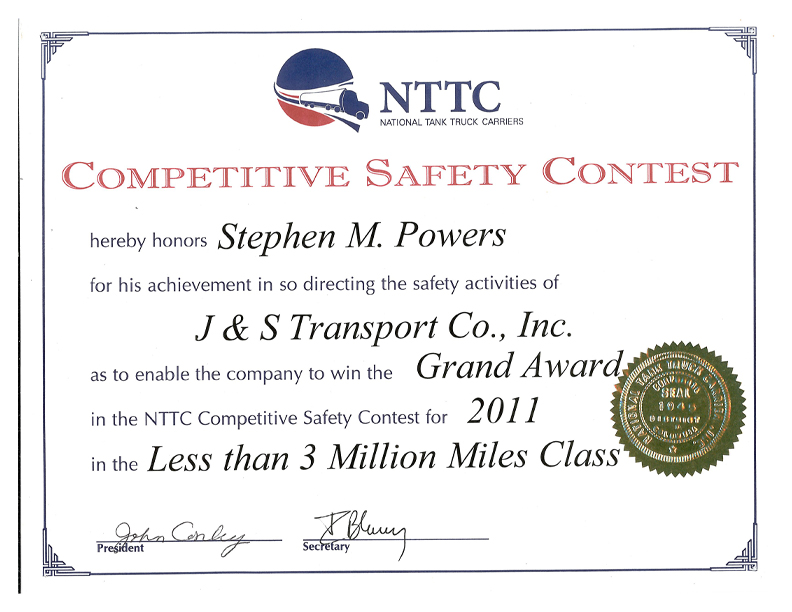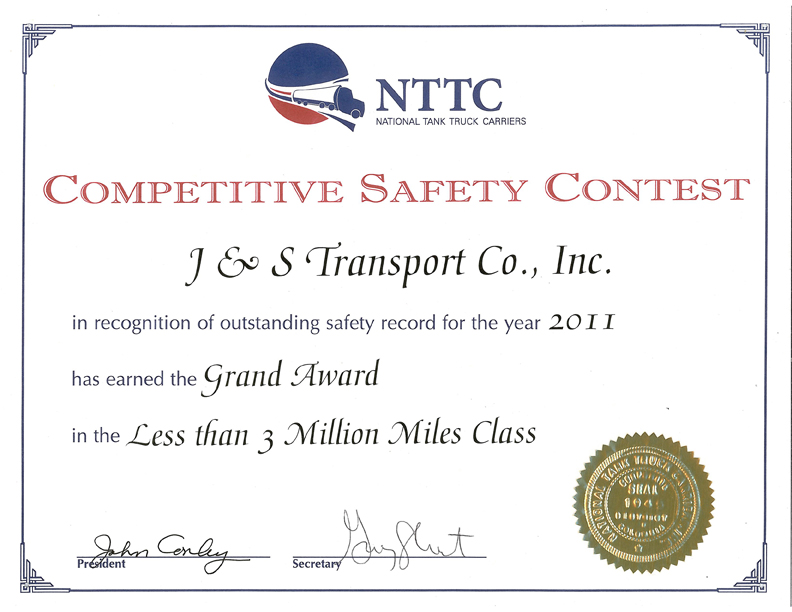PRISM
12 Washington Street
Lynn, MA 01904
Date: 10/01/2013
Dear Professional Driver,
It should come as no surprise to us at J&S Transport that commercial motor vehicle safety is on the front burner with the Department of Transportation. Just look at all the Out-of-Service orders being handed out, especially with commercial bus companies. As we know, the DOT uses the Federal Motor Carrier Safety Administration to reduce crashes involving Commercial Motor Vehicles, but also to remove unsafe motor carriers from the road. To carry out this mission, the FMCSA requires a cooperative partnership with State and local governments to achieve established DOT goals. This partnership uses a comprehensive system of identification, education, awareness, safety monitoring, and enforcement to hold Motor Carriers accountable for the safe operation of their fleets. As with most Federal Programs, State and local governments are provided Federal grant monies to create this partnership. In previous Driver Letters, we learned the Motor Carrier Safety Assistance Program (MCSAP) provides funding for such programs as Ticketing Aggressive Cars and Trucks (TACT) and the Commercial Vehicle Safey Administration (CVSA) who develop universal roadside inspection criteria and procedures used by State and local law enforcement. These two programs provide vital data to the FMCSA Motor Carrier Safety Improvement Process (MCSIP) which in turn drives programs as Compliance, Safety, Accountability (CSA), Carrier Safety Profile (CSP) {a.k.a. SAFER System} and the Pre-employment Screening Program (PSP) systems.
The FMCSA has an additional program in its tool box to remove unsafe motor carriers from the road. It is called Performance and Registration Information Systems Management (PRISM). PRISM focuses on CMV safety through two major processes: Commercial Motor Vehicle Registration and Enforcement. The State’s International Registration Plan (IRP) provides the framework to ensure all carriers, engaged in interstate commerce, are uniquely identified with the U.S. Department of Transportation Number when registering their commercial motor vehicles. State IRP’s check the safety fitness of each carrier prior to issuing vehicle registrations and permits. This safety fitness check will uncover if the motor carrier is operating while under a FMCSA Out-of-Service Order and identifying carriers/vehicles targeted for FMCSA inspections. In addition, PRISM provides an automated enforcement mechanism ensuring motor carriers update their MCS-150 data biennially. States will deny renewal of IRP license plates if the carrier’s MCS-150 expires prior to the expiration date of the renewal.
States are not required to participate in PRISM. However, fully implemented PRISM States have demonstrated safety improvement compared with non-PRISM States. To enroll in PRISM, States need to register with the DOT, maintain uniformity with the program and implement required processes. PRISM has demonstrated that State commercial motor vehicle registration sanctions can be a powerful enforcement tool for DOT to accomplish its mission to reduce accidents involving commercial motor vehicles. PRISM requires motor carriers to improve identified safety deficiencies or face progressively more stringent sanctions up to and including being placed Out-of-Service by the FMCSA and State license suspensions. Congress has authorized funding through the Transportation Equity Act for the 21st Century (TEA-21) to expand PRISM nationally. PRISM program funding for fiscal year 2014 is authorized by the Moving Head for Progress in the 21st Century Act (MAP-21) as explained in a previous Driver Letter.
Be Safe!
Steve


